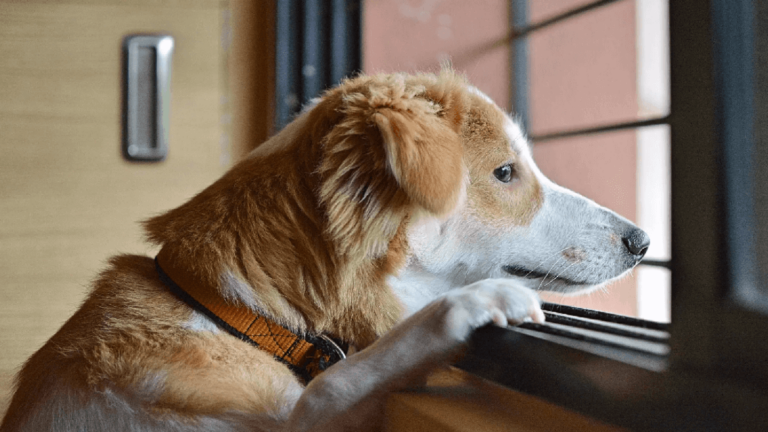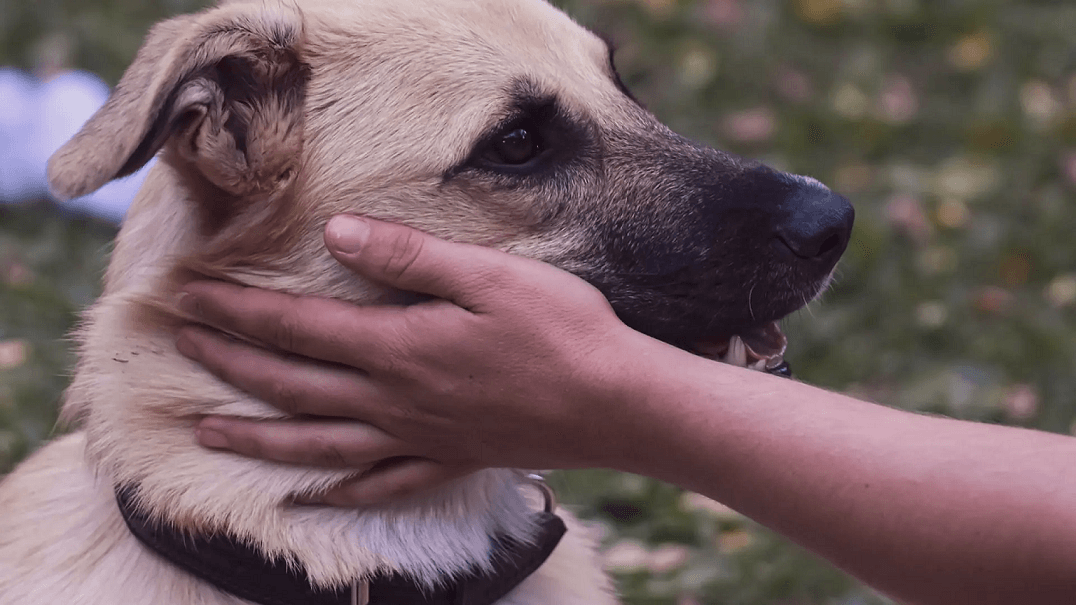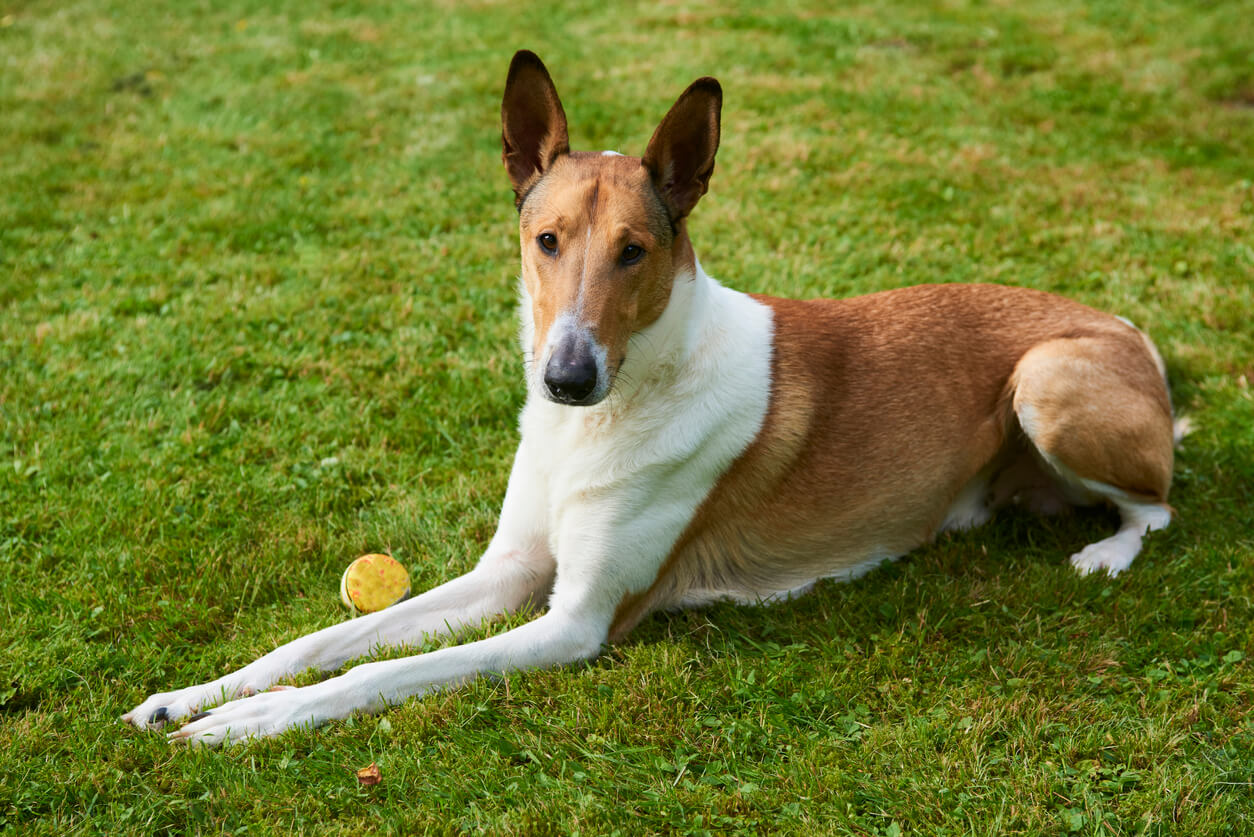How Do Dogs Feel When They Change Owners?

There are some occasions when a canine who has spent a lifetime in a home with a family must leave. There are several legitimate reasons why this might be a reality, such as a move, a death, financial problems, or difficult-to-resolve differences with other animals in the household. In these circumstances, it’s usual to ask if dogs suffer when they change owners?
Overnight, their routine will change completely, as well as the people who will surround them from that moment on. When leaving with a new owner, their adaptation will depend on several factors, such as breed, age, and environment. Find out all the details in the following article!
Will dogs always remember their old family after they change owners?

The connection that humans have with canines is nothing new. Canis lupus familiaris is the first domesticated dog in history and has been with us for more than ten thousand years, so both species have learned a lot from each other.
We now know that dogs are capable of recognizing emotions in people and empathizing with them. This helps them create strong emotional connections with their caregivers. So, what happens when dogs change owners? Do they remember their former family?
The short answer is yes. However, this doesn’t mean that a dog can’t adapt to its new family nor that it’ll spend its life missing its previous humans.
Research has found that dogs, like almost all animals except humans, have a short-term memory of only two minutes. In other words, their ability to retain information about an action prior to the moment at hand is very limited.
In contrast, a dog’s long-term memory is associative: They can remember events from the past if there’s a sensory stimulus. Let’s imagine, for example, that you use a certain perfume and have a very positive relationship with your pet. Then, the dog changes ownership and the new owner buys the same perfume you used to use. The animal is likely to associate this smell with positive emotions, remembering the concept that you represent to him.
Other research has found that dogs can have some episodic memories. For example, a study at Eötvös Loránd University in Budapest found that canines remember complex past events.
How does a canine feel when it’s taken away from its owner?
As social animals, handlers worry about the possible distress a change in caregiver may cause a dog. Therefore, the transformations generated in relation to their environment and the people they see every day could affect them to a greater or lesser extent, depending on the case.
For example, sometimes the dog could have some problematic behavior at the beginning until it gets used to the new environment. However, it should improve in the following weeks. Some of the sensations the dog might experience in this period are as follows:
- Confusion and disorientation: Dogs are very territorial animals and know their surroundings very well. If they’re suddenly moved to a new home, they’re very likely to feel lost.
- Stress or anxiety: Stress is a defense mechanism that prepares dogs for potentially dangerous situations. Even if there’s no real risk, dogs may feel anxious and manifest it with barking, crying, or stereotypies, which are repetitive sequences that don’t seem to have any objective, such as tail biting.
- Mistrust: If taken to a new home with unfamiliar people, it’s not uncommon for the animal to feel distrustful or even show some aggressive behavior.
- Depression: In very severe cases, if the dog is suffering from the change of caregivers, it could develop depression. This will lead to a lack of appetite and, as a consequence, a loss of weight and energy. Helping a dog with depression requires multidisciplinary knowledge, so it’s important to take them to a veterinarian if this is the case.
- Curiosity: Not all feelings are negative. Sometimes, dogs can show signs of excitement when it comes to new smells, people, and corners, which indicates a positive adaptation.
- The need to recognize hierarchies: Especially if there are other animals at home, the dog will try to understand its place in the new family structure. Depending on the case, they may try to exercise leadership or maintain a more submissive attitude.
- Happiness and search for security: Finally, a dog could also feel happy as soon as it arrives at its new home and try to get the affection and company of its owners.
How does a dog adapt to a new home?

The adaptation process will depend on several factors, such as the following:
- Breed: Golden retrievers, Shetland sheepdogs (“shelties”), and shorthaired collies are more social, docile and adaptable breeds. On the other hand, Chihuahuas, for example, may be more anxious about a new home.
- Socialization: Pets that have had more interaction with other people throughout their lives will need less time to adapt to a new home.
- Environment: A safe and comfortable environment is essential for them to adapt as well as possible. This implies a place to rest, food, water, stimulation, and affection.
- Age and experience: Of course, puppies will be much more curious about a new place. On the other hand, an adult dog with an established routine of years may take longer to adapt.
You may wonder how long it takes for a dog to get used to its new environment. This, of course, will depend on the factors just discussed. However, it could be said, broadly speaking and according to anecdotal evidence, that it takes about 15 days for a dog to adapt to a new home.
Dogs can move on!
If there are extenuating circumstances that prevent you from continuing to live with your furry companion and you’re worried about the suffering that changing owners may cause, it’s important to know that dogs will be able to move on. Dogs don’t experience feelings of sadness or banishment in the same way that we do.
Of course, they may feel anxiety and confusion until things are a little clearer for them. It’s important to accompany this process with affection, encouragement, and proper care in the new home.
There are some occasions when a canine who has spent a lifetime in a home with a family must leave. There are several legitimate reasons why this might be a reality, such as a move, a death, financial problems, or difficult-to-resolve differences with other animals in the household. In these circumstances, it’s usual to ask if dogs suffer when they change owners?
Overnight, their routine will change completely, as well as the people who will surround them from that moment on. When leaving with a new owner, their adaptation will depend on several factors, such as breed, age, and environment. Find out all the details in the following article!
Will dogs always remember their old family after they change owners?

The connection that humans have with canines is nothing new. Canis lupus familiaris is the first domesticated dog in history and has been with us for more than ten thousand years, so both species have learned a lot from each other.
We now know that dogs are capable of recognizing emotions in people and empathizing with them. This helps them create strong emotional connections with their caregivers. So, what happens when dogs change owners? Do they remember their former family?
The short answer is yes. However, this doesn’t mean that a dog can’t adapt to its new family nor that it’ll spend its life missing its previous humans.
Research has found that dogs, like almost all animals except humans, have a short-term memory of only two minutes. In other words, their ability to retain information about an action prior to the moment at hand is very limited.
In contrast, a dog’s long-term memory is associative: They can remember events from the past if there’s a sensory stimulus. Let’s imagine, for example, that you use a certain perfume and have a very positive relationship with your pet. Then, the dog changes ownership and the new owner buys the same perfume you used to use. The animal is likely to associate this smell with positive emotions, remembering the concept that you represent to him.
Other research has found that dogs can have some episodic memories. For example, a study at Eötvös Loránd University in Budapest found that canines remember complex past events.
How does a canine feel when it’s taken away from its owner?
As social animals, handlers worry about the possible distress a change in caregiver may cause a dog. Therefore, the transformations generated in relation to their environment and the people they see every day could affect them to a greater or lesser extent, depending on the case.
For example, sometimes the dog could have some problematic behavior at the beginning until it gets used to the new environment. However, it should improve in the following weeks. Some of the sensations the dog might experience in this period are as follows:
- Confusion and disorientation: Dogs are very territorial animals and know their surroundings very well. If they’re suddenly moved to a new home, they’re very likely to feel lost.
- Stress or anxiety: Stress is a defense mechanism that prepares dogs for potentially dangerous situations. Even if there’s no real risk, dogs may feel anxious and manifest it with barking, crying, or stereotypies, which are repetitive sequences that don’t seem to have any objective, such as tail biting.
- Mistrust: If taken to a new home with unfamiliar people, it’s not uncommon for the animal to feel distrustful or even show some aggressive behavior.
- Depression: In very severe cases, if the dog is suffering from the change of caregivers, it could develop depression. This will lead to a lack of appetite and, as a consequence, a loss of weight and energy. Helping a dog with depression requires multidisciplinary knowledge, so it’s important to take them to a veterinarian if this is the case.
- Curiosity: Not all feelings are negative. Sometimes, dogs can show signs of excitement when it comes to new smells, people, and corners, which indicates a positive adaptation.
- The need to recognize hierarchies: Especially if there are other animals at home, the dog will try to understand its place in the new family structure. Depending on the case, they may try to exercise leadership or maintain a more submissive attitude.
- Happiness and search for security: Finally, a dog could also feel happy as soon as it arrives at its new home and try to get the affection and company of its owners.
How does a dog adapt to a new home?

The adaptation process will depend on several factors, such as the following:
- Breed: Golden retrievers, Shetland sheepdogs (“shelties”), and shorthaired collies are more social, docile and adaptable breeds. On the other hand, Chihuahuas, for example, may be more anxious about a new home.
- Socialization: Pets that have had more interaction with other people throughout their lives will need less time to adapt to a new home.
- Environment: A safe and comfortable environment is essential for them to adapt as well as possible. This implies a place to rest, food, water, stimulation, and affection.
- Age and experience: Of course, puppies will be much more curious about a new place. On the other hand, an adult dog with an established routine of years may take longer to adapt.
You may wonder how long it takes for a dog to get used to its new environment. This, of course, will depend on the factors just discussed. However, it could be said, broadly speaking and according to anecdotal evidence, that it takes about 15 days for a dog to adapt to a new home.
Dogs can move on!
If there are extenuating circumstances that prevent you from continuing to live with your furry companion and you’re worried about the suffering that changing owners may cause, it’s important to know that dogs will be able to move on. Dogs don’t experience feelings of sadness or banishment in the same way that we do.
Of course, they may feel anxiety and confusion until things are a little clearer for them. It’s important to accompany this process with affection, encouragement, and proper care in the new home.
All cited sources were thoroughly reviewed by our team to ensure their quality, reliability, currency, and validity. The bibliography of this article was considered reliable and of academic or scientific accuracy.
- Abdai, J., Bartus, D., Kraus, S., Gedai, Z., Laczi, B., & Miklósi, Á. (2022). Individual recognition and long-term memory of inanimate interactive agents and humans in dogs. Animal Cognition, 25(6), 1427-1442. https://link.springer.com/article/10.1007/s10071-022-01624-6
- Fugazza, C., Pogány, Á., & Miklósi, Á. (2016). Recall of others’ actions after incidental encoding reveals episodic-like memory in dogs. Current Biology, 26(23), 3209-3213. https://www.cell.com/current-biology/fulltext/S0960-9822(16)31142-3
- Salonen, M., Mikkola, S., Niskanen, J. E., Hakanen, E., Sulkama, S., Puurunen, J., & Lohi, H. (2023). Breed, age, and social environment are associated with personality traits in dogs. iScience, 26(6). https://www.sciencedirect.com/science/article/pii/S258900422300768X
- Stockholm University. (6 de febrero de 2015). New findings on animal memory. Stockholm University. Consultado el 29 de enero del 2024. https://www.su.se/english/research/new-findings-on-animal-memory-1.222566
- Van der Laan, J., Vinke, C., & Arndt, S. (2023). Nocturnal activity as a useful indicator of adaptability of dogs in an animal shelter and after subsequent adoption. Scientific Reports, 13. https://www.nature.com/articles/s41598-023-46438-9
This text is provided for informational purposes only and does not replace consultation with a professional. If in doubt, consult your specialist.








